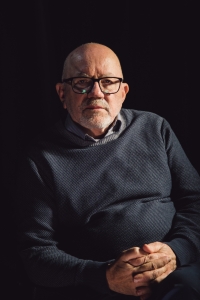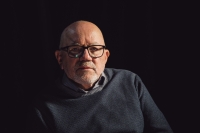I would like that with all the differences that individual nationalities have, that we respect each other

Stáhnout obrázek
Ryszard Jerzy Zwiewka was born on September 13, 1950 in the Polish city of Piła to Jan and Elżbieta. His father, as a member of the Polish army, was captured by the Germans during the Second World War, but in 1944 he became a soldier of the German army and was captured by the Americans near Pilsen. After the war, the family settled in the town of Piła, and the father worked as a baker. They had five children in succession, but one son died in 1945. Ryszard started attending elementary school in 1957 and became a member of the scout organization. Since the family was Catholic, they regularly attended church services. In 1964, he entered high school chemistry, and in 1968 he and his classmates took part in the protests in Poznań against the withdrawal of the play Dziady from the Warsaw Theatre. He got to university only a year after graduation. He studied at the Agricultural College in Poznań and at the same time completed compulsory military service and an officer‘s school at the navy. He met his future wife Gabriela during the visit of female students from Slovakia to Poland. After completing his university studies, he got a job at the university, but in 1978 he and his wife decided to get married, and Ryszard left Poland and moved to Slovakia. Because of his Polish citizenship, he was not allowed to work at the university. After arriving in Slovakia and an unsuccessful interview at the Slovak Academy of Sciences, he got a job at Milex, after nine years in a design office. In the 1990s, he founded a company for the import of machinery for the food industry, but after some time he began to use his knowledge of two languages, Polish and Slovak, and has been translating and interpreting for 25 years.

